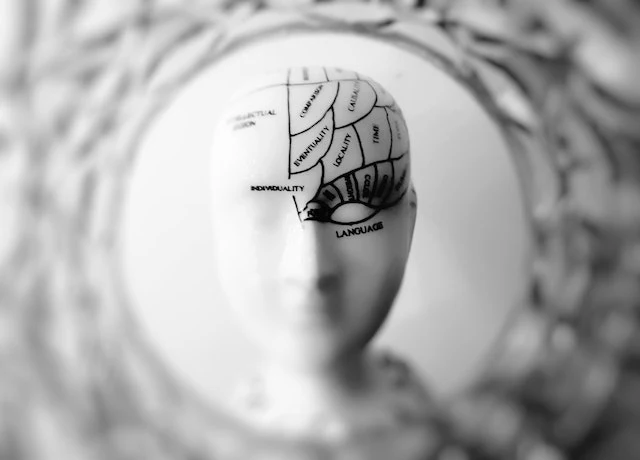Memory is a fundamental cognitive process that allows us to retain and recall information. It enables us to learn from past experiences, navigate our surroundings, and make informed decisions. However, our memory is far from infallible. We've all experienced moments of forgetfulness, misremembering details, or even fabricating memories altogether. These common memory lapses often lead us to question the reliability of our recollections. But what if these imperfections are not bugs in our memory system, but rather intentional features?
The purpose of memory
To understand the role of faulty memory, we must first recognize the purpose it serves. Memory is not solely about storing accurate representations of past events. Instead, it is a dynamic tool that aids us in adapting to our environment. Our memories are shaped by our interpretations, emotions, and biases, allowing us to create meaning from our experiences. In this sense, memory acts as a filter, organizing information in a way that is relevant and meaningful to us.
Faulty memory and cognitive biases
One fascinating aspect of faulty memory is its connection to cognitive biases. Cognitive biases are systematic patterns of deviation from rationality or objectivity in decision-making. Our memories play a crucial role in shaping these biases. For example, the availability heuristic bias occurs when we rely on immediate examples that come to mind easily. Our memories, influenced by accessibility and emotional salience, can lead us to make judgments based on vivid, but not necessarily representative, memories.
Similarly, confirmation bias is another cognitive bias influenced by faulty memory. This bias occurs when we selectively recall and interpret information that confirms our preexisting beliefs. Our memory tends to favor information that aligns with our worldview, leading to a reinforcement of existing biases. Thus, faulty memory contributes to the perpetuation of cognitive biases, shaping our perceptions and decisions.
The benefits of faulty memory
While faulty memory can lead to cognitive biases and inaccuracies, it also offers unique benefits. One such advantage is the role faulty memory plays in stimulating creativity and imagination. Our memories are not mere replicas of the past; they are malleable and subject to reinterpretation. This flexibility allows us to generate new ideas, imagine alternative scenarios, and think beyond the constraints of reality.
Additionally, faulty memory can contribute to our emotional well-being. Our memories are not stored as objective records of events, but rather as subjective interpretations infused with emotions. As a result, our memory tends to prioritize positive or emotionally significant experiences while downplaying or forgetting negative ones. This selective memory helps protect our emotional state by focusing on the positive aspects of our lives and reducing the impact of past traumas or unpleasant events.
Memory's role in personal narratives
Our memories play a significant role in constructing our personal narratives. We create a coherent sense of self by weaving together various memories and experiences into a meaningful story. However, this process is not purely objective or accurate. Faulty memory contributes to the construction of personal narratives by filling in gaps, rearranging events, and emphasizing certain details over others. In this way, faulty memory adds depth and richness to our personal stories, giving them a unique perspective and subjective flavor.
Social implications of faulty memory
Faulty memory has important implications in various social contexts. In legal systems, eyewitness testimonies heavily rely on memory recall. However, studies have shown that eyewitnesses are prone to memory distortions and false identifications. Faulty memory can lead to wrongful convictions or erroneous judgments, highlighting the need for caution when relying solely on memory-based evidence.
Furthermore, faulty memory influences our interpersonal relationships. Conflicts and misunderstandings can arise when different individuals recall the same event differently. Discrepancies in memory can create tension and disagreement, as each person's version of events may be influenced by their biases, emotions, and unique perspectives. Recognizing the fallibility of memory can foster empathy, understanding, and open communication in such situations.
Strategies for managing faulty memory
While we cannot eliminate faulty memory entirely, there are strategies we can employ to mitigate its potential negative effects. External memory aids, such as calendars, reminders, and notes, can help compensate for memory lapses and enhance our ability to remember important information. By offloading some of the cognitive burden onto external tools, we can rely on them as reliable sources of information and reduce the reliance on our fallible memory.
Moreover, cultivating mindfulness and attention can improve memory accuracy and reduce memory distortions. Being present and fully engaged in our experiences allows us to encode information more effectively and enhance memory retrieval. Mindfulness practices, such as meditation and focused attention exercises, can train our minds to be more attentive and less prone to distractions, thereby improving memory performance.
Conclusion
Faulty memory is not a flaw in our cognitive system but a fascinating feature with its own benefits and implications. While it can lead to cognitive biases and memory distortions, it also stimulates creativity, preserves emotional well-being, and contributes to the formation of personal narratives. Understanding the intricacies of faulty memory allows us to navigate its complexities and make more informed decisions. By acknowledging the limitations of our memory, we can adopt strategies to manage its fallibilities and optimize our cognitive processes.
FAQs
1. Can faulty memory be completely eliminated?
No, faulty memory is an inherent characteristic of human cognition. However, we can employ strategies to minimize its negative impact and improve memory performance.
2. Are all memory distortions intentional fabrications?
No, memory distortions can occur unintentionally due to various factors such as biases, emotions, and cognitive processes. They are not necessarily deliberate fabrications.
3. How does faulty memory contribute to creativity?
Faulty memory allows for reinterpretation and imagination, enabling us to generate new ideas, explore possibilities, and think outside the box.
4. Can mindfulness practices help improve memory accuracy?
Yes, mindfulness practices enhance attention and focus, leading to better encoding and retrieval of information, ultimately improving memory accuracy.


Post a Comment